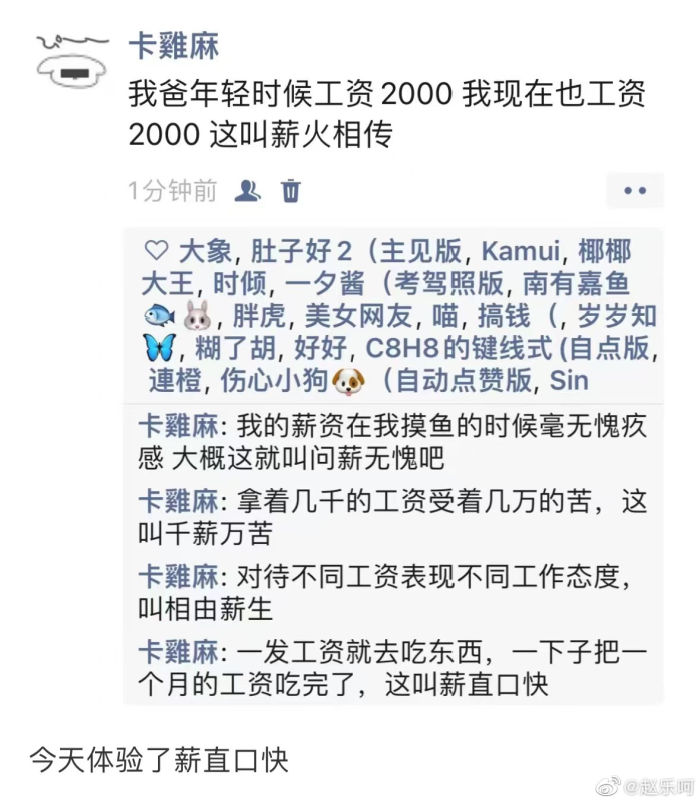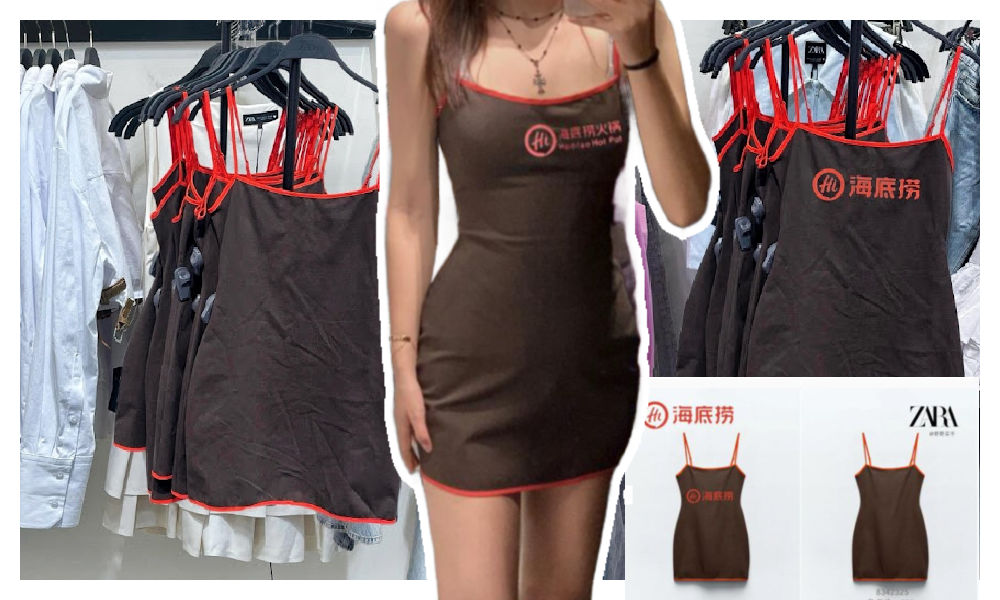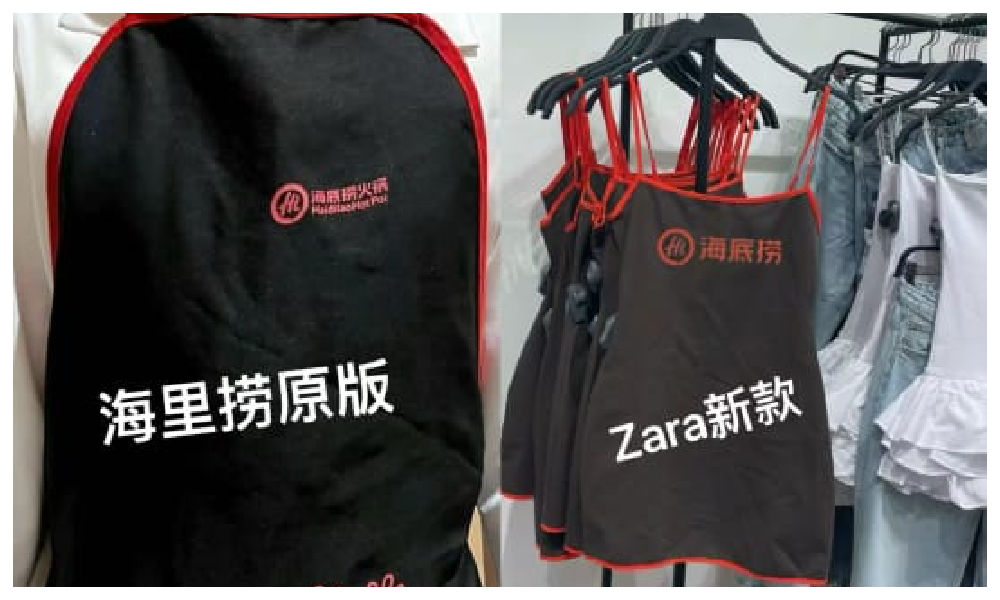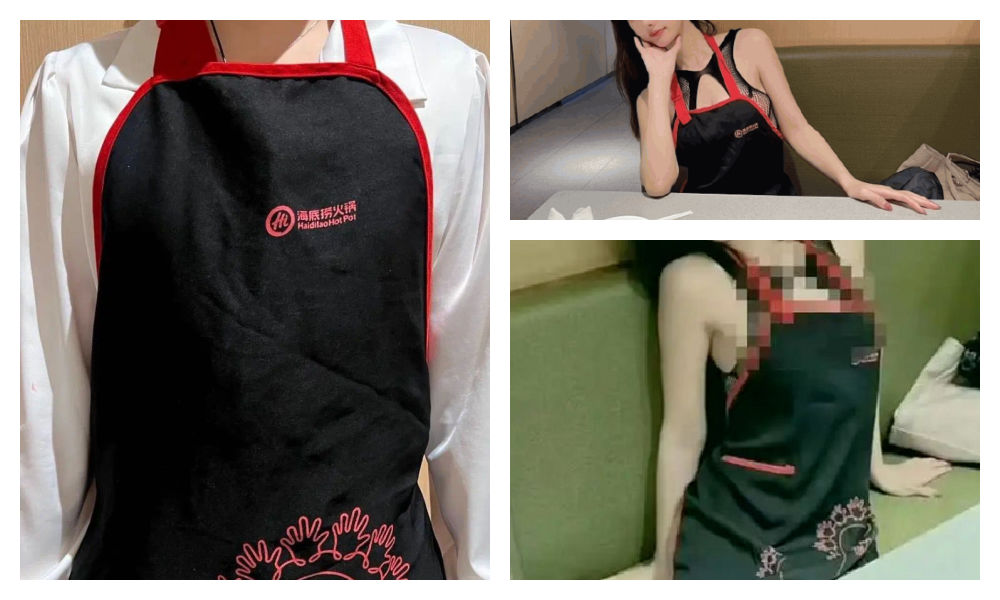China Memes & Viral
Online Discussions over Income: “When My Dad Was Young, His Monthly Salary Was 2000 Yuan (And I Still Earn the Same)”
Making 2000 yuan ($287) now is not the same as making 2000 yuan then. Some netizens complain that they’ll never earn as much as their dad did.
Published
12 months agoon

A hashtag titled “When My Dad Was Young His Monthly Income Was 2000 Yuan” (#爸爸年轻时的工资是2000#) received 130 million views on Weibo this week and raised discussions about changes in average monthly salary, inflation, and discouraged youth.
The hashtag comes from a post by a netizen who jokingly wrote: “My dad’s salary was 2000 yuan (US$287) when he was young. My current monthly income is the same, [so] he passed the torch.”

The text contains a word joke, using the idiom xīnhuǒ xiāngchuán 薪火相传, meaning “passing on the torch” or “handing down the tradition,” but the word ‘torch’ also contains the character for ‘salary,’ reinforcing the joke of passing on salary from one generation to the next. The same blogger also posted other similar jokes in the thread.
This week, China’s National Bureau of Statistics released new statistics showing that the average annual salary for a Chinese urban, non-private sector worker in 2022 was 114,029 yuan ($16,400) while private sector workers had an average annual income of 65,237 yuan ($9375).
According to Caixin, the salary gap between the private and non-private sector have been widening since 2008, leading to employees in China’s non-private sector now earning around 75% more than people working for private-sector companies.
In 2019, China’s per capita income reached US$10,000 (Song & Zhou 2021, 1). However, in addition to the differences between the private and non-private sectors, there are also significant income gaps between urban and rural areas, as well as across different regions. Then there are also income disparities related to other things, such as differential treatment in the urban labour market of locals versus migrants.
Right now, a McDonald’s store manager in Suzhou would make a minimum monthly income of 7200 yuan ($1035), plus a 13th month pay. A restaurant staff member in Qingyuan, no experience required, would get a minimum monthly income of 2000-3000 yuan ($287-$430) according to recent online job advertisements.
In discussions surrounding the ‘my dad made 2000 yuan’ joke, many people share their own experiences of what they are making versus what their parents made.
One popular Weibo blogger (@琉玄) wrote: “I remember my dad made 3000 yuan ($430) around the year 2000. However, a lot of people are still at that level of pay nowadays. In 2000, I paid 1.5 yuan ($0.22) for a bowl of rice noodles in Hunan. In 2005 in Beijing, I could get a jianbing (Chinese pancake) for the same price. Now, a bowl of rice noodles in Shanghai will cost 38 yuan ($5.5), and jianbing prices start at 7 yuan ($1).”
“With your dad’s 2,000, he could do whatever he wanted; with your 2,000, you only can only do what your salary will get you,” one commenter wrote.
The idea that some children are still barely making more than their parents did over two decades ago – yet it buys them much less – is prevalent in online discussions.
Some Weibo users also suggest that this is a reason why so many Chinese youth are ‘lying flat’ (tǎng píng 躺平). By ‘lying flat,’ Chinese young adults from middle and lower classes basically refuse to sweat over climbing higher up the social and economic ladder. They will only do the bare minimum and believe that upward social mobility has become an unattainable goal (read more here).
Chinese political/social commentator Hu Xijin (@胡锡进) also had something to say about this issue. According to Hu, you could still find some people getting by on 2000 yuan per month in China’s more rural areas, including among farmers and fishermen. In the bigger cities, however, people could not get by with a monthly income of just 2000 yuan, and he suggests that even a cleaner in Beijing would be able to make 6000 yuan ($862) now if they work twenty days per month.
At the same time, urban, white-collar workers are seeing a declining trend in income while competition and work pressure is increasing. It is therefore not surprising, according to Hu, that they are venting online and finding some pleasure in mocking themselves. Nevertheless, Hu argues, Chinese youth is still among the most hardworking in the world.
He also reminds people that a middle income in Beijing around the year 2000 was below 2000 yuan: “If you are now in your early 20s, your dad did not make 2000 yuan as a young worker in Beijing. And if he was working a smaller city, he definitely did not make it [2000 yuan]!”
However, some people in the comment section believe that Hu’s post trivializes a serious issue and demonstrates a lack of awareness of the current realities, especially considering his position of privilege.
“Why don’t they eat meat porridge?” (Hébù shí ròumí 何不食肉糜) one commenter wrote, referring to the famous sentence attributed to Emperor Hui (259–307) of Western Jin. The story goes that when he was told that his people were starving because there was no rice, he asked why did not eat porridge with meat instead. Similar to “let them have cake” (“qu’ils mangent de la brioche“), it showed that he was oblivious to the sufferings of the common folk.
“Hu should go to the counties in Hebei and ask around, he’ll find plenty of people with a monthly pay of 2000.” “Come to Harbin, you’ll find many people on this pay here.”
Others also suggest that Hu was not right in saying that a cleaner in Beijing could earn 6000 a month by only working twenty days.
“I currently make an income of 10k, yet I still can’t afford a house, have one child, and we can just get by.”
Although many people, including Hu Xijin, suggested that it is not actually true that your dad made 2000 yuan when he was young and that you still get the same pay, some claim that it is their reality: “But really. My dad made around that amount back in the day, and now that I’m grown up, my pay is around that amount. I’m speechless.”
“I won’t even tell my dad what I’m making,” another commenter wrote: “After graduating, I just told him I’ll never make what he made.”
By Manya Koetse,
Get the story behind the hashtag. Subscribe to What’s on Weibo here to receive our newsletter and get access to our latest articles:
References
Song, Ligang, and Yixiao Zhou (eds.) 2021. China’s Challenges in Moving towards a High-Income Economy. Australian National University Press.
Spotted a mistake or want to add something? Please let us know in comments below or email us. First-time commenters, please be patient – we will have to manually approve your comment before it appears.
©2023 Whatsonweibo. All rights reserved. Do not reproduce our content without permission – you can contact us at info@whatsonweibo.com.
Manya Koetse is the founder and editor-in-chief of whatsonweibo.com. She is a writer, public speaker, and researcher (Sinologist, MPhil) on social trends, digital developments, and new media in an ever-changing China, with a focus on Chinese society, pop culture, and gender issues. She shares her love for hotpot on hotpotambassador.com. Contact at manya@whatsonweibo.com, or follow on Twitter.

Also Read
China Insight
The Tragic Story of “Fat Cat”: How a Chinese Gamer’s Suicide Went Viral
The story of ‘Fat Cat’ has become a hot topic in China, sparking widespread sympathy and discussions online.
Published
2 days agoon
May 9, 2024
The tragic story behind the recent suicide of a 21-year-old Chinese gamer nicknamed ‘Fat Cat’ has become a major topic of discussion on Chinese social media, touching upon broader societal issues from unfair gender dynamics to businesses taking advantage of grieving internet users.
The story of a 21-year-old Chinese gamer from Hunan who committed suicide has gone completely viral on Weibo and beyond this week, generating many discussions.
In late April of this year, the young man nicknamed ‘Fat Cat’ (胖猫 Pàng Māo, literally fat or chubby cat), tragically ended his life by jumping into the river near the Chongqing Yangtze River Bridge (重庆长江大桥) following a breakup with his girlfriend. By now, the incident has come to be known as the “Fat Cat Jumping Into the River Incident” (胖猫跳江事件).
News of his suicide soon made its rounds on the internet, and some bloggers started looking into what was behind the story. The man’s sister also spoke out through online channels, and numerous chat records between the young man and his girlfriend emerged online.
One aspect of his story that gained traction in early May is the revelation that the man had invested all his resources into the relationship. Allegedly, he made significant financial sacrifices, giving his girlfriend over 510,000 RMB (approximately 71,000 USD) throughout their relationship, in a time frame of two years.
When his girlfriend ended the relationship, despite all of his efforts, he was devastated and took his own life.
The story was picked up by various Chinese media outlets, and prominent social and political commentator Hu Xijin also wrote a post about Fat Cat, stating the sad story had made him tear up.
As the news spread, it sparked a multitude of hashtags on Weibo, with thousands of netizens pouring out their thoughts and emotions in response to the story.
Playing Games for Love
The main part of this story that is triggering online discussions is how ‘Fat Cat,’ a young man who possessed virtually nothing, managed to provide his girlfriend, who was six years older, with such a significant amount of money – and why he was willing to sacrifice so much in order to do so.
The young man reportedly was able to make money by playing video games, specifically by being a so-called ‘booster’ by playing with others and helping them get to a higher level in multiplayer online battle games.
According to his sister, he started working as a ‘professional’ video gamer as a means of generating money to satisfy his girlfriend, who allegedly always demanded more.
He registered a total of 36 accounts to receive orders to play online games, making 20 yuan per game (about $2.80). Because this consumed all of his time, he barely went out anymore and his social life was dead.
In order to save more money, he tried to keep his own expenses as low as possible, and would only get takeout food for himself for no more than 10 yuan ($1,4). His online avatar was an image of a cat saying “I don’t want to eat vegetables, I want to eat McDonald’s.”

The woman in question who he made so many sacrifices for is named Tan Zhu (谭竹), and she soon became the topic of public scrutiny. In one screenshot of a chat conversation between Tan and her boyfriend that leaked online, she claimed she needed money for various things. The two had agreed to get married later in this year.
Despite of this, she still broke up with him, driving him to jump off the bridge after transferring his remaining 66,000 RMB (9135 USD) to Tan Zhu.
As the story fermented online, Tan Zhu also shared her side of the story. She claimed that she had met ‘Fat Cat’ over two years ago through online gaming and had started a long distance relationship with him. They had actually only met up twice before he moved to Chongqing. She emphasized that financial gain was never a motivating factor in their relationship.
Tan additionally asserted that she had previously repaid 130,000 RMB (18,000 USD) to him and that they had reached a settlement agreement shortly before his tragic death.
Ordering Take-Out to Mourn Fat Cat
– “I hope you rest in peace.”
– “Little fat cat, I hope you’ll be less foolish in your next life.”
– “In your next life, love yourself first.”
These are just a few of the messages left by netizens on notes attached to takeout food deliveries near the Chongqing Yangtze River Bridge.
As Fat Cat’s story stirred up significant online discussion, with many expressing sympathy for the young man who rarely indulged in spending on food and drinks, some internet users took the step of ordering McDonalds and other food delivery services to the bridge, where he tragically jumped from, in his honor.
This soon snowballed into more people ordering food and drinks to the bridge, resulting in a constant flow of delivery staff and a pile-up of take-out bags.

Delivery food on the bridge, photo via Weibo.
However, as the food delivery efforts picked up pace, it came to light that some of the deliveries ordered and paid for were either empty or contained something different; certain restaurants, aware of the collective effort to honor the young man, deliberately left the food boxes empty or substituted sodas or tea with tap water.

At least five restaurants were caught not delivering the actual orders. Chinese bubble tea shop ChaPanda was exposed for substituting water for milk tea in their cups. On May 3rd, ChaPanda responded that they had fired the responsible employee.
Another store, the Zhu Xiaoxiao Luosifen (朱小小螺蛳粉), responded on that they had temporarily closed the shop in question to deal with the issue. Chinese fast food chain NewYobo (牛约堡) also acknowledged that at least twenty orders they received were incomplete.
Fast food company Wallace (华莱士) responded to the controversy by stating they had dismissed the employees involved. Mixue Ice Cream & Tea (蜜雪冰城) issued an apology and temporarily closed one of their stores implicated in delivering empty orders.
In the midst of all the controversy, Fat Cat’s sister asked internet users to refrain from ordering take-out food as a means of mourning and honoring her brother.
Nevertheless, take-out food and flowers continued to accumulate near the bridge, prompting local authorities to think of ways of how to deal with this unique method of honoring the deceased gamer.
Gamer Boy Meets Girl
On Chinese social media, this story has also become a topic of debate in the context of gender dynamics and social inequality.
There are some male bloggers who are angry with Tan Zhu, suggesting her behaviour is an example of everything that’s supposedly “wrong” with Chinese women in this day and age.
Others place blame on Fat Cat for believing that he could buy love and maintain a relationship through financial means. This irked some feminist bloggers, who see it as a chauvinistic attitude towards women.
A main, recurring idea in these discussions is that young Chinese men such as Fat Cat, who are at the low end of the social ladder, are actually particularly vulnerable in a fiercely competitive society. Here, a gender imbalance and surplus of unmarried men make it easier for women to potentially exploit those desperate for companionship.
The story of Fat Cat brings back memories of ‘Mo Cha Official,’ a not-so-famous blogger who gained posthumous fame in 2021 when details of his unhappy life surfaced online.
Likewise, the tragic tale of WePhone founder Su Xiangmao (苏享茂) resurfaces. In 2017, the 37-year-old IT entrepreneur from Beijing took his own life, leaving behind a note alleging blackmail by his 29-year-old ex-wife, who demanded 10 million RMB (±1.5 million USD) (read story).
Another aspect of this viral story that is mentioned by netizens is how it gained so much attention during the Chinese May holidays, coinciding with the tragic news of the southern China highway collapse in Guangdong. That major incident resulted in the deaths of at least 48 people, and triggered questions over road safety and flawed construction designs. Some speculate that the prominence given to the Fat Cat story on trending topic lists may have been a deliberate attempt to divert attention away from this incident.
‘Fat Cat’ was cremated. His family stated their intention to take necessary legal steps to recover the money from his former girlfriend, but Tan Zhu reportedly already reached an agreement with the father and settled the case. Nevertheless, the case continues to generate discussions online, with some people wondering: “Is it over yet? Can we talk about something different now?”

Fat Cat images projected in Times Square
However, given that images of the ‘Fat Cat’ avatar have even appeared in Times Square in New York by now (Chinese internet users projected it on one of the big LED screens), it’s likely that this story will be remembered and talked about for some time to come.
By Manya Koetse
– With contributions by Miranda Barnes and Ruixin Zhang
Independently reporting China trends for over a decade. Like what we do? Support us and get the story behind the hashtag by subscribing:
Spotted a mistake or want to add something? Please let us know in comments below or email us. First-time commenters, please be patient – we will have to manually approve your comment before it appears.
©2024 Whatsonweibo. All rights reserved. Do not reproduce our content without permission – you can contact us at info@whatsonweibo.com.
China Brands, Marketing & Consumers
Zara Dress Goes Viral in China for Resemblance to Haidilao Apron
Who’s gonna buy this Zara dress in China? “I’m afraid that someone will say I stole the apron from Haidilao.”
Published
3 weeks agoon
April 19, 2024
A short dress sold by Zara has gone viral in China for looking like the aprons used by the popular Chinese hotpot chain Haidilao.
“I really thought it was a Zara x Haidialo collab,” some customers commented. Others also agree that the first thing they thought about when seeing the Zara dress was the Haidilao apron.

The “original” vs the Zara dress.
The dress has become a popular topic on Xiaohongshu and other social media, where some images show the dress with the Haidilao logo photoshopped on it to emphasize the similarity.

One post on Xiaohongshu discussing the dress, with the caption “Curious about the inspiration behind Zara’s design,” garnered over 28,000 replies.
Haidilao, with its numerous restaurants across China, is renowned for its hospitality and exceptional customer service. Anyone who has ever dined at their restaurants is familiar with the Haidilao apron provided to diners for protecting their clothes from food or oil stains while enjoying hotpot.
These aprons are meant for use during the meal and should be returned to the staff afterward, rather than taken home.

The Haidilao apron.
However, many people who have dined at Haidilao may have encountered the following scenario: after indulging in drinks and hotpot, they realize they are still wearing a Haidilao apron upon leaving the restaurant. Consequently, many hotpot enthusiasts may have an ‘accidental’ Haidilao apron tucked away at home somewhere.
This only adds to the humor of the latest Zara dress looking like the apron. The similarity between the Zara dress and the Haidilao apron is actually so striking, that some people are afraid to be accused of being a thief if they would wear it.
One Weibo commenter wrote: “The most confusing item of this season from Zara has come out. It’s like a Zara x Haidilao collaboration apron… This… I can’t wear it: I’m afraid that someone will say I stole the apron from Haidilao.”

Funnily enough, the Haidilao apron similarity seems to have set off a trend of girls trying on the Zara dress and posting photos of themselves wearing it.

It’s doubtful that they’re actually purchasing the dress. Although some commenters say the dress is not bad, most people associate it too closely with the Haidilao brand: it just makes them hungry for hotpot.
By Manya Koetse
Independently reporting China trends for over a decade. Like what we do? Support us and get the story behind the hashtag by subscribing:
Spotted a mistake or want to add something? Please let us know in comments below or email us. First-time commenters, please be patient – we will have to manually approve your comment before it appears.
©2024 Whatsonweibo. All rights reserved. Do not reproduce our content without permission – you can contact us at info@whatsonweibo.com.
Subscribe

The Tragic Story of “Fat Cat”: How a Chinese Gamer’s Suicide Went Viral

A Brew of Controversy: Lu Xun and LELECHA’s ‘Smoky’ Oolong Tea

Weibo Watch: The Battle for the Bottom Bed

Zara Dress Goes Viral in China for Resemblance to Haidilao Apron

“Old Bull Eating Young Grass”: 86-Year-Old Chinese Painter Fan Zeng Marries 36-Year-Old Xu Meng

The Tragic Story of “Fat Cat”: How a Chinese Gamer’s Suicide Went Viral

The ‘Two Sessions’ Suggestions: Six Proposals Raising Online Discussions

The Chinese Viral TikTok Song Explained (No, It’s Not About Samsung)

“Old Bull Eating Young Grass”: 86-Year-Old Chinese Painter Fan Zeng Marries 36-Year-Old Xu Meng

Top 9 Chinese Movies to Watch This Spring Festival Holiday

Party Slogan, Weibo Hashtag: “The Next China Will Still Be China”

From Pitch to Politics: About the Messy Messi Affair in Hong Kong (Updated)

More than Malatang: Tianshui’s Recipe for Success

Chengdu Disney: The Quirkiest Hotspot in China

Two Years After MU5735 Crash: New Report Finds “Nothing Abnormal” Surrounding Deadly Nose Dive
Get in touch
Would you like to become a contributor, or do you have any tips or suggestions? Get in touch here!
Popular Reads
-

 China Insight2 days ago
China Insight2 days agoThe Tragic Story of “Fat Cat”: How a Chinese Gamer’s Suicide Went Viral
-

 China Insight2 months ago
China Insight2 months agoThe ‘Two Sessions’ Suggestions: Six Proposals Raising Online Discussions
-

 China Music1 month ago
China Music1 month agoThe Chinese Viral TikTok Song Explained (No, It’s Not About Samsung)
-

 China Arts & Entertainment3 weeks ago
China Arts & Entertainment3 weeks ago“Old Bull Eating Young Grass”: 86-Year-Old Chinese Painter Fan Zeng Marries 36-Year-Old Xu Meng



